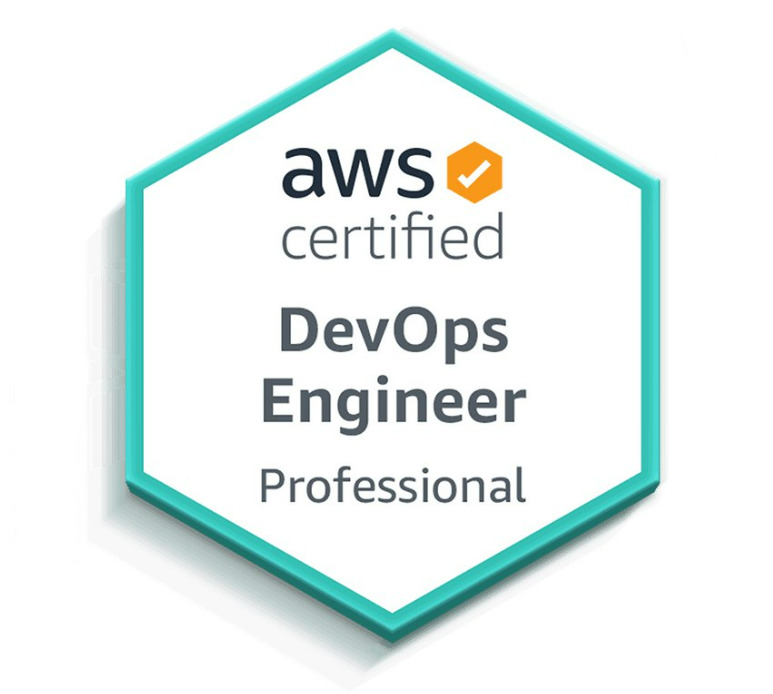Becoming a DevOps manager is a goal for many because this career combines technical skills with leadership. This guide on how to become a DevOps manager will show the steps to achieve this.
I will explain what skills, experiences, and knowledge you need at each stage in this career path. Let’s walk through the six steps to start this career!
Who Is A DevOps Manager?
A DevOps manager is known as an important role in a company that optimizes and streamlines the software development and IT operations processes.
DevOps is a technical and cultural movement that emphasizes:
- Teamwork
- Automation
- CI/CD practices
DevOps managers are those who drive DevOps to enable faster, more reliable, and efficient software delivery.

Roles and Responsibilities
As a DevOps manager, I am a team leader who guides the creation and delivery of software to ensure everything runs smoothly in a system. Below are the specific tasks I must complete every day:
- Oversee all aspects of DevOps.
- Plan, create, and set up tests to ensure the software works perfectly.
- Handle server issues to keep them safe and working well.
- Work closely with the DevOps team, talking and listening to help everyone work together.
- Use monitoring tools to watch over systems and make sure they run smoothly.
- Update new tools and tricks to make the team’s work faster and better.
- Use cloud services (AWS, Azure, or GCP) to set up and run software.
With these tasks, I, as well as other DevOps managers, are crucial in driving the company’s DevOps initiatives, optimizing processes, and fostering a culture of teamwork and improvement.
How To Become A DevOps Manager
Let’s discover the six steps to start this career, from getting a Bachelor’s degree and certs in DevOps to gaining experience and finding jobs!
1. Get A Bachelor’s Degree

Like any other management career, DevOps management requires you to have at least a Bachelor’s degree. I recommend finding a college or university offering a degree in computer science or information technology.
In this program, you should take classes that cover the basics like computer knowledge, programming, and computer networks. Also, seek out courses covering DevOps practices, principles, and tools, specifically:
- CI/CD
- Containerization (e.g., Docker)
- Automation scripting
- Cloud computing platforms (e.g., AWS, Azure, GCP).
When you finish your degree, you can think about getting advanced degrees as you go on in your career.
2. Have Proper DevOps Certifications

While in college, you can also pursue relevant certs. They will validate your skills and knowledge in various aspects of DevOps practices and tools. Here is a list of some helpful certs you should get:
- AWS Certified DevOps Engineer: This cert, offered by AWS, shows your skills in deploying, operating, and managing systems on AWS, a popular cloud platform.
- Azure DevOps Engineer Expert: It shows you’re skilled at using MS Azure for DevOps.
- Docker Certified Associate: This cert confirms your Docker skills.
- CKA: This cert shows you can manage Kubernetes, a vital tool for container management.
- Puppet Certified Pro: Puppet is used for automation in DevOps, and this cert says you’re good at it.
- Chef Certified Chef Dev: It shows you’re adept at using Chef for automation.
- Jenkins Certified Engineer: Getting this cert means you can handle Jenkins, a popular tool for CI/CD.
- CASM: Agile methods are vital in DevOps, and this cert teaches you how to blend them.
- ITIL 4 Managing Pro: This cert helps you integrate ITIL practices into DevOps for better service delivery.
- CSM: This cert is about Scrum, an Agile framework used in DevOps.
- DevOps Institute Certifications: They offer various certs like DevOps Foundation and SRE Foundation.
Remember that the best certs for you depend on your specific career goals and your current skill set. So, consider these factors before pursuing any cert.
3. Gain Hands-on Experience

Many people think that you can only gain practical experience after college, but the truth is that you can have it while still in your learning program. So, how to do that? I recommend joining clubs or student groups focusing on:
- Tech
- Programming
- IT
These groups often organize hackathons, workshops, and projects that allow you to work on practical skills and team up with peers.
After graduation, you can seek internships with companies or IT departments. Internships will help you build more skills and introduce you to pros in your chosen field, including mentors, colleagues, and supervisors.
Beyond technical skills, internships allow you to hone soft skills that are vital in any professional setting, such as:
- Communication
- Teamwork
- Problem-solving
- Time management
Many companies use internships as a recruitment pipeline. So, if you perform well during your internship, you may receive a job offer from the same companies upon graduation.
4. Continuous Learning

You need to keep learning as new tools, practices, and techs emerge constantly in the rapidly evolving tech world. So, how to continue learning and stay updated? Here are my go-to ways:
- Read blogs and articles about what’s new.
- Go to DevOps events, online webinars, and local meetups.
- Use websites like Coursera, edX, Udemy, or Pluralsight to take DevOps courses.
- Get higher-level certs.
- Test new DevOps tools. You can set up personal projects or labs to practice using them.
- Be part of DevOps forums like Reddit’s r/devops or DevOps Stack Exchange.
- Regularly check and improve your DevOps processes.
In essence, continuous learning is not just about keeping up because it’s about:
- Staying ahead
- Being adaptable
- Continually improving yourself
- Boost your contributions to your field/company
Don’t disregard this step because it is a key factor in personal as well as professional success.
5. Find Junior-Level DevOps Jobs

Typically, you must have a few years working in a junior-level role before getting promoted to a DevOps manager position. Here are some options for you:
- Junior DevOps engineer
- DevOps associate
- DevOps technician
- Junior SRE
- Junior CI/CD engineer
- Release engineer
- Junior build and release engineer
When you work in these roles, your tasks often include:
- Assist with deployment pipelines
- Configure and manage infrastructure
- Team up with teams
To find these jobs, I recommend visiting the careers pages of companies known for their DevOps practices because they often post openings for junior DevOps positions.
You should also explore job listings on GitHub Jobs and GitLab’s job board. These platforms attract tech-savvy employers seeking DevOps talent.
Remember that junior DevOps roles often involve hands-on experience with tools like Docker, Jenkins, AWS, and scripting languages.
As you progress from junior to senior levels, your duties will expand. You’ll need to sharpen your skills, foster a positive team environment, and continually evolve your technical expertise to excel in the field.
6. Move Up

After a few years working in a junior job, you should learn the skills and gain the experience to advance to the DevOps manager role.
To easily move up to a higher position, I recommend asking for extra duties, even if they’re not part of your usual job.
As a manager, you need to motivate and lead your team well. So, take time to understand what your colleagues do. You need to know their challenges and needs.
When working on a project in your company, focus on getting real results and highlight your contributions that have improved projects and the company. Don’t be afraid to take smart risks because trying new things leads to innovation.
Moving up to be a DevOps manager isn’t just about technical skills. It’s also about being a leader, teaming up well, and making positive changes in your company. This way, you can work your way into this role.
Required Skills
To be a great DevOps Manager, you need to have a wide range of skills as follows:
- Know about the technology used in the job, like Git for code control, tools for automation, and cloud services.
- Be good leaders to guide teams, set goals, and keep everyone motivated.
- Talk effectively to ensure developers and operations teams work well together.
- Be skilled at solving tricky problems, especially about tools and systems.
- Handle many projects at once using Agile or Scrum.
- DevOps often means changing how a company operates. So, you need to help your teams adapt to new working methods.
- Identify and reduce risks linked to software and system changes.
- Know how to use automation tools to make things work better.
- Set up and manage systems that ensure software gets to users quickly and safely.
- Use monitoring tools (Dynatrace, NewRelic, App Dynamics, etc.) to track how systems are doing to make choices and improve how things work.
- Understand security best practices to be able to integrate them into the pipeline.
- If your company uses services or tools from others, you must work well with those vendors to match company goals and rules.
You need to hone these skills to lead your teams well, use automation in your work, and build a teamwork culture and company improvement.
Career Paths

Many DevOps managers begin in junior roles, like junior DevOps engineer or DevOps specialist. They learn the basics and work with experienced experts.
After a while, they move up to mid-level roles like DevOps engineer or DevOps admin. Here, they do more complex tasks and often start leading small teams.
The next step is becoming senior DevOps engineers or architects. They’re experts in DevOps and lead big projects, help junior team members, and shape DevOps plans.
Some DevOps experts transition into leads or managers. They oversee teams and budgets and make sure DevOps is used all over the company.
DevOps managers can go even further, becoming directors of DevOps or VPs of DevOps. They plan big strategies, manage bigger teams and budgets, and ensure DevOps fits the company’s overall goals.
In some cases, DevOps managers reach executive roles like CTO or CIO. They have a big say in the company’s tech direction.
As you can see, the career path of a DevOps manager is all about learning, trying new things, and making sure tech and teamwork go hand in hand in a company.
Salary
In 2023, DevOps managers typically make between $142,000 and $235,000 per year (about $182,000 per year on average), including:
- A base salary of $110,000 to $175,000 annually.
- An extra pay of $32,000 to $60,000/year.
These numbers show that DevOps managers get paid well for their role in improving how companies deliver software and handle their tech systems.
FAQs
Is There A Demand For DevOps Managers?
Yes, DevOps managers are in high demand as companies recognize the role of DevOps practices for faster software delivery. They are seeking managers to guide their teams in technical aspects and team-building exercises.
Why Do Companies Need DevOps Managers?
Companies need DevOps managers because they help boost productivity, creativity, innovation, customer satisfaction, change management, and software quality.
As a result, they ensure consistent results and bring a fresh view to the IT and security field.
Are DevOps Engineers The Same As Managers?
No, these roles are different. DevOps engineers handle technical tasks. Meanwhile, DevOps managers lead teams and oversee how DevOps practices are used in a company.
Wrap Up
Through this guide, I want to emphasize that getting this job isn’t just about technical skills. Along with them, leadership, teamwork, and a commitment to lifelong learning are vital, too.
I believe you can make a real impact by promoting DevOps practices by gaining the right skills, certifications, and practical experience as I’ve guided.
Thank you for reading!
